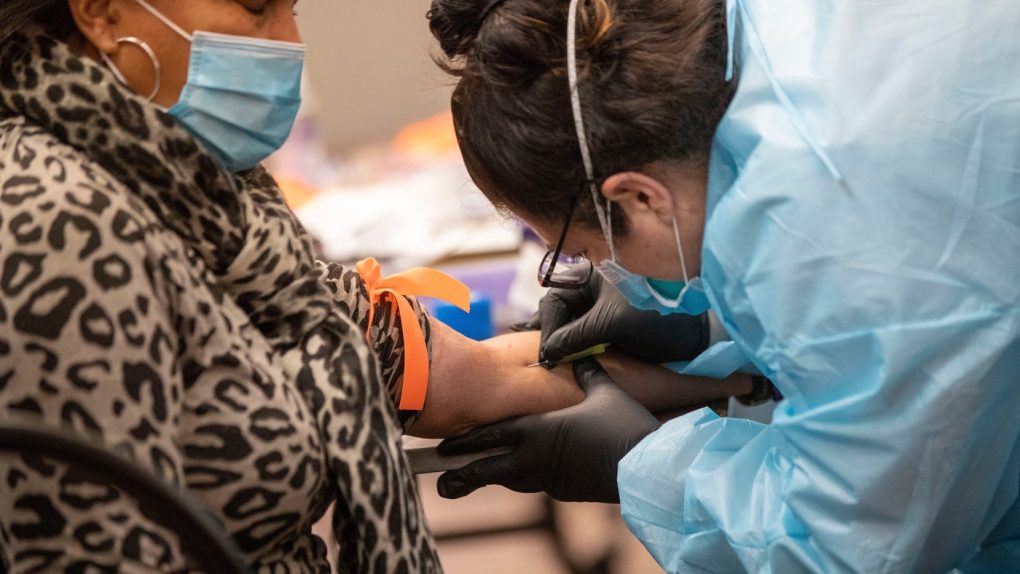- Companies working on brand new coronavirus drugs meant to treat COVID-19 and provide limited immunity are approaching human trials.
- Monoclonal antibodies are artificially grown antibodies based on the ones the immune system develops when fighting off the coronavirus infection.
- Eli Lilly is the first pharmaceutical company to have started human testing, with the Phase 1 drug trial already underway at several US hospitals.
The coronavirus epicenter moved from China to Europe to the US and then South America in a matter of months. As some outbreaks die down following successful tactics meant to flatten the curve, others flare up. And even as the number of new coronavirus cases drops in some regions, the risk of further outbreaks doesn’t disappear. We’ll still have to avoid crowds, wear masks, and wash our hands often throughout the day for the foreseeable future, and that’s because anybody can be infected.
The good news is that we’ve come a long way when it comes to treating COVID-19. Some of the meds that had been developed to treat other diseases work against the novel coronavirus as well, and vaccines are already showing plenty of promise. On top of that, researchers around the world are studying a brand new type of drug that’s been engineered specifically to fight off the COVID-19 infection. The first human trial for this type of medicine has already started, and the treatment could be available to patients long before vaccines are ready.
A vaccine can provide longer immunity and prevent COVID-19 infection by training the immune system to produce antibodies that can stop the disease. But vaccines will only be ready for emergency use later this year, and even then, not everybody will have access to one. As we learned just last week, the logistical problems behind meeting the demand for COVID-19 vaccines are daunting. Pharma giants think the world will need anywhere between five to 10 candidates to meet demand, and as many as 15 billion doses. Manufacturing and deploying these vaccines for the world’s entire population will require time, and it may be years until some people get access to COVID-19 vaccines.
But there’s another type of drug that can help cure COVID-19 and provide a short-term immunity, and that sort of medication is also based on the body’s response to the novel coronavirus. Plasma transfusions from COVID-19 survivors to patients exhibiting a severe case were able to improve the condition of those patients and help them recover. Yet plasma therapies are cumbersome procedures and they can’t meet the demand either. That’s where modern science comes in, as doctors can clone the antibodies that can help neutralize the coronavirus and create drugs that block the virus’s ability to replicate.
We’ve talked about monoclonal antibodies at length in the past few weeks, as several companies are working on such projects. Some include antibodies from animals, others clone antibodies that work on SARS, and some use COVID-19-specific antibodies to boost the immune response.
The first clinical trials testing monoclonal antibodies have already started, CNN reports. Eli Lilly has teamed up with Canadian company AbCellera as well as the Vaccine Research Center at the National Institute of Allergy and Infectious Diseases to study the immune response to the novel coronavirus and create LY-CoV555.
That’s the monoclonal antibody that’s now in Phase 1 testing, meant to measure the safety and effectiveness of the drug. Some patients will receive the monoclonal antibody drug while others will get a placebo, as is the case with double-blind tests for new drugs. Patients at New York University’s Grossman School of Medicine in New York, Cedars-Sinai in Los Angeles, and Emory University in Atlanta will be included in the study.
LY-CoV555 worked in a lab, where it was used to neutralize the virus. The associated research will soon be published. This allowed Eli Lilly to move forward with the trial and start manufacturing the drug. “If it does work, we don’t want to waste a single day, we want to have as much medicine as possible available to help as many people quickly,” Eli Lilly’s senior vice president and chief scientific officer Dr. Dan Skovronsky told CNN.
Phase 2 will follow in a few weeks, and it will involve a larger number of patients, including people who have not been hospitalized. The drug can also be used to provide temporary immunity to people at risk. Vaccines train the body to mass-produce antibodies, while monoclonal antibody drugs and plasma lend antibodies that can prevent the infection. The protection from the latter is shorter than vaccines, but it can still prevent people from getting infected when a second wave of coronavirus reaches a region.
Eli Lilly will test different mixtures of antibodies, although the optimal scenario is for a single antibody to work at a relatively low dose. It’s also the cheapest scenario for manufacturing the drug, but the company will go with whatever combination works best against the virus.
If trials prove successful, monoclonal antibody drugs from Eli Lilly and other pharmaceutical labs working on similar COVID-19 meds could be available in the coming months.








